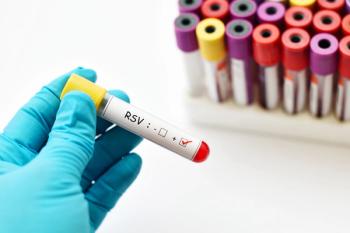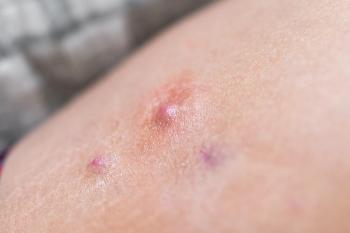
Improving the site-sponsor relationship can get trials off on the right foot and on a path for success.

Improving the site-sponsor relationship can get trials off on the right foot and on a path for success.

Findings from MONeT clinical trial show positive safety and efficacy of Abrysvo in individuals aged 18 to 59 years with an increased risk of developing severe respiratory syncytial virus-associated lower respiratory tract disease.

In part 2 of this video interview with ACT editor Andy Studna, Stephen Pyke, chief clinical data and digital officer, Parexel, discusses how AI can be used in clinical trials to streamline operational processes.

Systematic review of research articles sought to identify and characterize different technologies being used in clinical studies.

In part 1 of this video interview with ACT editor Andy Studna, Stephen Pyke, chief clinical data and digital officer, Parexel, gives a broad overview of the use of artificial intelligence in clinical development and how regulatory bodies are viewing it.

In the EMPACT-MI trial, Jardiance produced a 10% relative risk reduction in the primary composite endpoint of time to first hospitalization for heart failure or all-cause mortality.

NBI-1070770 is a novel, selective, and orally active, negative allosteric modulator.

Spearheaded by disease foundations, the creation of clinical registries is streamlining data collection and driving informed decisions.

Trial to analyze novel therapy MK-1084 plus Keytruda (pembrolizumab) in certain patients with metastatic non-small cell lung cancer whose tumors harbor KRAS G12C mutations and express PD-L1.

Multiple sites will be added to the trial through collaboration with network of community-based oncology practices.

A study conducted by the Tufts CSDD in collaboration with CluePoints and PwC revealed that slightly more than half of sponsors and contract research organizations have adopted risk-based quality management approaches.

In the Phase III BE HEARD I and BE HEARD II trials, a greater proportion of patients with moderate-to-severe hidradenitis suppurativa who were administered Bimzelx achieved the primary endpoint of clinically meaningful improvements in HiSCR50.

In part 2 of this video interview with ACT editor Andy Studna, Tirisham Gyang, MD, assistant professor of neurology at The Ohio State University discusses how industry can effectively enroll patients from underrepresented populations into their trials.

Open label, dose-escalation trial is testing the efficacy of LyGenesis’ first-in-class allogenic regenerative cell therapy.

Raludotatug deruxtecan is a potential first-in-class CDH6-directed antibody drug conjugate that has shown promise in patients with CDH6-expressing serous-type ovarian cancer and renal cell carcinoma.

In part 1 of this video interview with ACT editor Andy Studna, Tirisham Gyang, MD, assistant professor of neurology at The Ohio State University discusses how new research is changing the way industry recognizes multiple sclerosis in non-white populations.

Systematic review of available literature aimed to identify the most prominent barriers affecting enrollment in oncology drug trials.

The investigational TROP2-directed antibody drug conjugate improved progression-free survival in patients with unresectable or metastatic HR-positive, HER2-negative breast cancer.

While there is still potential left to be unlocked, current uses of artificial intelligence in clinical research include drug discovery, determining patient disposition, and dosing.

An increasing number of patients report looking for more simplicity and less burden related to a clinical trial, and a "bring your own device" option is one of the ways to meet this need

Phase III GATHER2 trial data show Izervay reduced the rate of geographic atrophy lesion growth across every month and every-other-month dosing through two years of treatment.

Krazati (adagrasib) was previously granted accelerated approval by the FDA to treat patients with KRASG12C-mutated locally advanced or metastatic non-small cell lung cancer who were previously administered at least one systemic therapy.

Over a 3.5-year period, members of EU-PEARL developed revamped templates for integrated research platforms to address their evolving complexity.

In the fourth and final part of this video interview, Greg Sturmer, co-founder and CEO of Elysium Therapeutics discusses the key features of O2P as well as plans for further development of the hydrocodone prodrug.

As clinical trials continue to advance and evolve to include real-world data, their success is becoming ever more dependent on the quality of data.

LPCN 1148 is an oral treatment that has shown promise preventing recurrence of overt hepatic encephalopathy and treating sarcopenia.

In part 3 of this video interview, Greg Sturmer, co-founder and CEO of Elysium Therapeutics discusses the development journey of his company's hydrocodone prodrug, O2P.

Systematic review of over 800 retracted articles suggest that better identification of postretraction citations should be implemented.

Johnson & Johnson is moving forward with a pair of Phase III trials of nipocalimab to reduce the risk of fetal neonatal alloimmune thrombocytopenia in alloimmunized pregnant patients.

In part 2 of this video interview, Greg Sturmer, co-founder and CEO of Elysium Therapeutics discusses what industry should be keeping top of mind when it comes to designing and executing pain clinical studies.